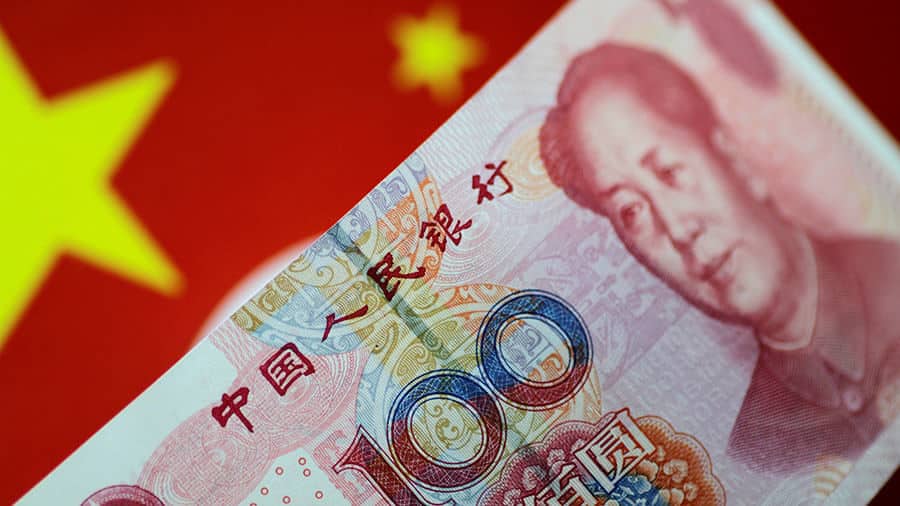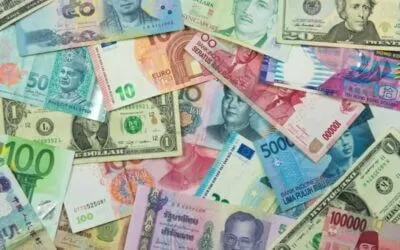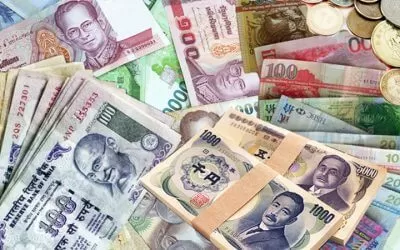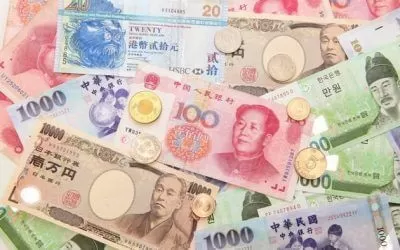Last updated March 6th, 2024.
China quickly transformed into one of the world’s strongest economic powers over the past few decades. As a result, investing in Chinese yuan became one of the most popular choices among currency traders.
The Chinese yuan’s use is now widespread from London to Singapore. Estimates rank it as the eighth most heavily traded currency. However, lax reporting standards across China and much of developing Asia mean the yuan probably makes the top five in reality.
Back in 2016, the IMF added it to their elite list of reserve currencies which many analysts saw as the beginning of the yuan’s rise in usage. They were clearly right.
Dozens of countries are buying everything from oil, to weapons, to infrastructure denominated in yuan. Billions of dollars’ worth of loans through China’s Belt and Road Initiative are made in terms of yuan.
A few years later, Bloomberg and Barclays Bank began adding the Chinese yuan to their benchmark indices. JPMorgan and the London Stock Exchange then followed.
With the yuan’s acceptance obvious, forex traders and cash-holders alike are thinking about adding it to their portfolios.
Higher trading volume doesn’t always equal a better performing currency though.
Should you invest in Chinese yuan for diversification? Will the currency appreciate or fall in value? Keep reading to find out.
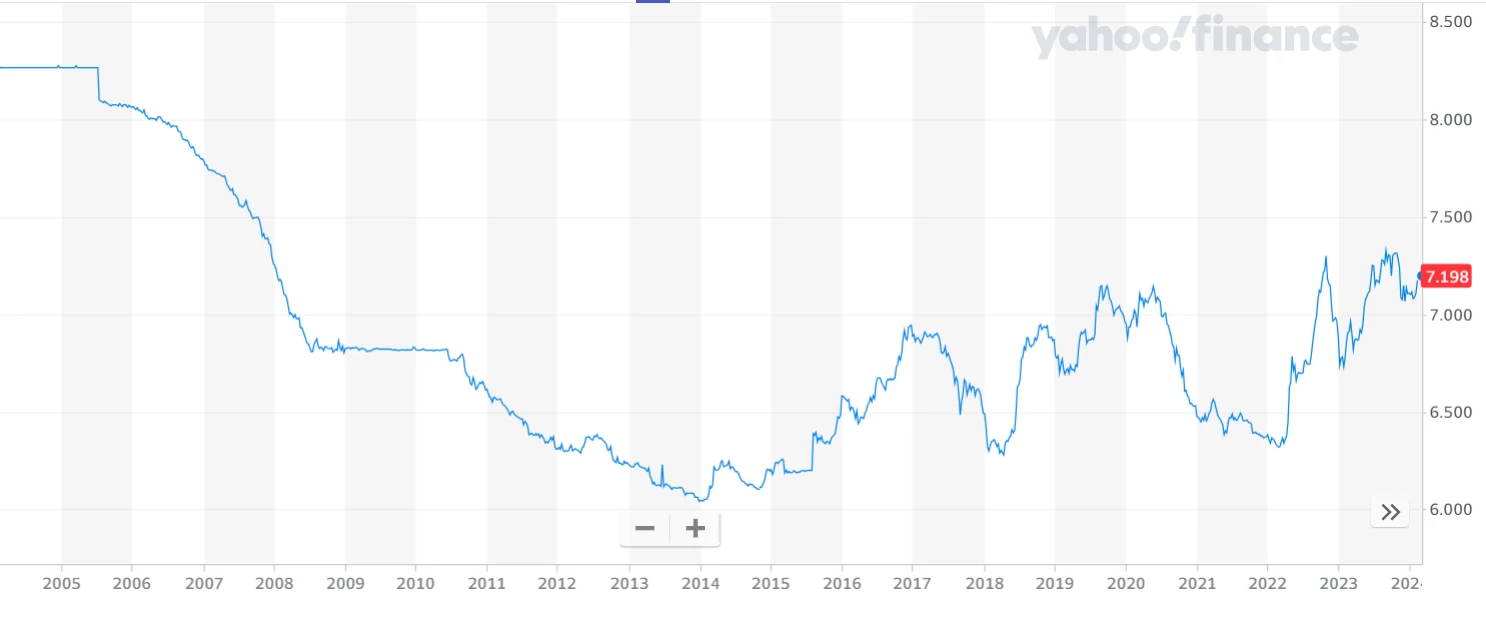
A 20 year chart comparing the U.S. dollar’s performance to the yuan. Up until 2014, anyone investing in Chinese yuan made steady gains before the currency started a slow decline.
Globalization Supports Long-Term Case to Invest in Yuan
China’s ambitions to become a major political force, in addition to an economic powerhouse, are not any secret.
The yuan’s future will play an important role in whether both these objectives will be achieved. Quite simply, China yuan must be reputable if they truly want to become a major international currency.
Lately, China has been pushing the Belt and Road Initiative with a goal of spreading its trade network and global influence. The project aims to finance and construct hundreds of railways, ports, and highway routes stretching across Eurasia.
Yet the Belt and Road would almost certainly fail if there was ever a lack of trust in the Chinese yuan or the nation’s economy. None of China’s partners want multi-billion-dollar loans that are denominated in terms of an unpredictable currency.
Likewise, the Communist Party plans to shift toward an economy based more on consumption and the service sector. While much of China’s recent success is due to low-cost manufacturing, the government realizes its industrial advantage won’t last forever.
Resource prices and labor costs in China are significantly higher than they were in the 2000s. Nearby competitors such as Vietnam and the Philippines enjoy a cheaper workforce, fewer regulations, and better economies.

Factories in Vietnam, like this one, are now competing with Chinese manufacturers in terms of price and quality.
The point is: cheap exports and an artificially devalued currency served its purpose for a time. But at this point in its stage of development, China must move higher up the value chain and spread its global influence.
A weak yuan is unproductive towards meeting China’s long-term goals. The nation’s leadership fully understands this fact.
US-China Trade War’s Effect on Yuan
You might imagine that a looming trade war between China and the United States would have some sort of effect on the Chinese yuan – whether positive or negative.
Except a stable yuan is in China’s best interest too. They never wanted to devalue the currency in the first place.
The U.S. worries that China could devalue their currency to boost exports, flood global markets with cheaper products, and overcome the impact of sanctions.
However, devaluing the Chinese yuan doesn’t make any sense due to reasons mentioned further above.
Don’t get us wrong – it’s possible that a trade war between the world’s two biggest economies will intensify. This would result in negative consequences for both parties, although a declining Yuan isn’t necessarily one of them.
Will the Yuan Increase in Value?
China’s long-term strategic goals will demand an appreciating, or at the very least stable yuan.
Of course, practically every currency fluctuates in the short-term. We personally don’t expect that the yuan will depreciate over a ten-year horizon though.
That’s because neither China nor competing powers such as the U.S. want a weaker Chinese yuan. It would mean a setback in China’s international ambitions along with greater political pressure at a pivotal moment.
Frankly, China doesn’t have any other good options besides continuing to support the yuan.
Therefore, if you’re seeking exposure to foreign currencies within an already diverse portfolio and plan on holding them for at least ten years, you may consider whether you’d like to invest in yuan.
Currencies like the Singapore Dollar and Malaysian Ringgit are safer bets for traders who purely seek capital gains. Nonetheless, the Chinese yuan still enjoys solid potential and could outperform other major currencies in the future.
FAQs
How Can I Invest in the Chinese Yuan?
Besides a forex platform, perhaps the easiest way is through a brokerage account that supports trading in Yuan. You can simply use it as a bank account and hold the currency using it.
Of course, you could always open a bank account in China and hold Yuan there. That involves travel and is far more difficult though.
Is Yuan a Good Investment?
That's hard to determine. Currency movements, one that belong's to an economy as big as China's, depend on a multitude of factors. There's no possible way to know whether the yuan will increase in value.

